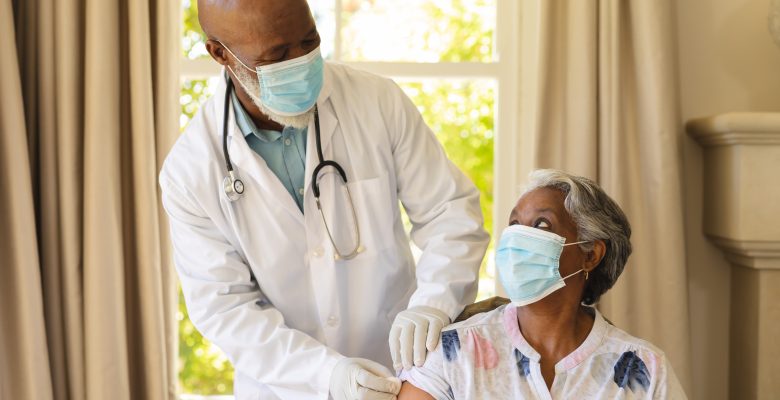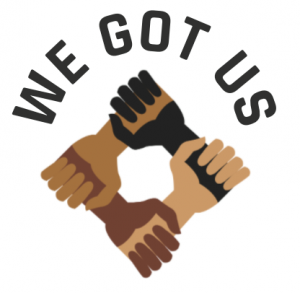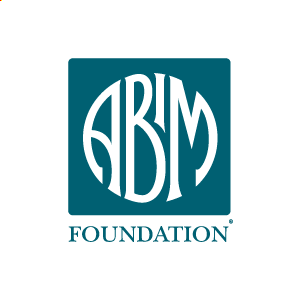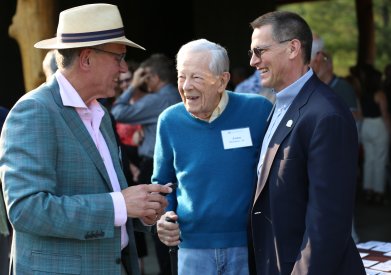ABIM Foundation Supports the We Got Us Empowerment Project

December 7, 2021
 Founded by LaShyra (Lash) Nolen, a Harvard Medical School student, the We Got Us Empowerment Project is a Boston-based collective of Black community members, health professional students, and allies dedicated to increasing vaccine access for marginalized populations.
Founded by LaShyra (Lash) Nolen, a Harvard Medical School student, the We Got Us Empowerment Project is a Boston-based collective of Black community members, health professional students, and allies dedicated to increasing vaccine access for marginalized populations.
Lash had two motivations in starting the organization. The first was to add nuance to the discussion about “vaccine hesitancy” that was being ascribed to Black people and attributed to historic discrimination that the Black community had experienced. “I wanted to validate not just the past but also the present and future concerns of the Black community,” she said, noting the structural racism her community continues to face.
Her second motivation was to create “intentional spaces where Black people can come together and ask questions without judgment or fear.” She noted the limited number of trusted messengers with accurate information about the vaccine in her community, and knew she had unique vantage point that would be valuable to her community. “As a Black woman and a medical student, I had my feet in both worlds,” she said. “I wanted to work with other people with their feet in both worlds to help people make the best decision for themselves and their communities.”
The project includes over 100 volunteers, including students at over eight Boston-area medical schools, as well as pre-medical and high school students. Project members have hosted community events, facilitated phone banking and ‘text banking,’ and trekked door-to-door to provide information about the COVID-19 vaccine and help register people to receive it. They have also collaborated with local community partners to hold creative events like comedy shows to combine art with their public health efforts.
We Got Us sponsors virtual “empowerment sessions” that are national in scope and are often done in coordination with other organizations, such as Black sororities or churches. These sessions provide information about COVID-19 and the vaccine through a critical race lens and creates a safe space for participants to share their questions and concerns. In addition to these sessions, her team also created an animated video geared toward COVID-19 education along with vaccine information pamphlets in four different languages.
Lash thinks that the most important thing health care systems can do to build trust is to acknowledge the historical and ongoing ways it has harmed marginalized communities. For individual clinicians, listening is the most important way to build trust. “If clinicians could take more time to listen to their patients, they’d really start to understand why it is they didn’t take their diabetes meds, or the stresses in their patients’ lives that would make it beneficial to have a mental health professional on their care team,” she said. She also said that clinicians should reflect and think about how they might unconsciously perpetuate racism, and engage in the “hard work of anti-racism through reflection and action.”
Although COVID-19 prompted Lash to start We Got Us, the problems that led to its creation—remnants of systemic racism manifested as decreased access to health care, limited access to trusted messengers, and lack of access to basic resources—will still need to be addressed once the pandemic ends. She described her own experiences accompanying family members to medical visits and serving as a health care advocate for them during these visits. “How do we make every Black person in America feel like they have a cousin, sister, or daughter in medicine?” she asked. “We need a living model for bringing communities and health empowerment together while also addressing the systemic factors that limit their accessibility to optimal health.”
The ABIM Foundation provided funding to the We Got Us Empowerment Project.




